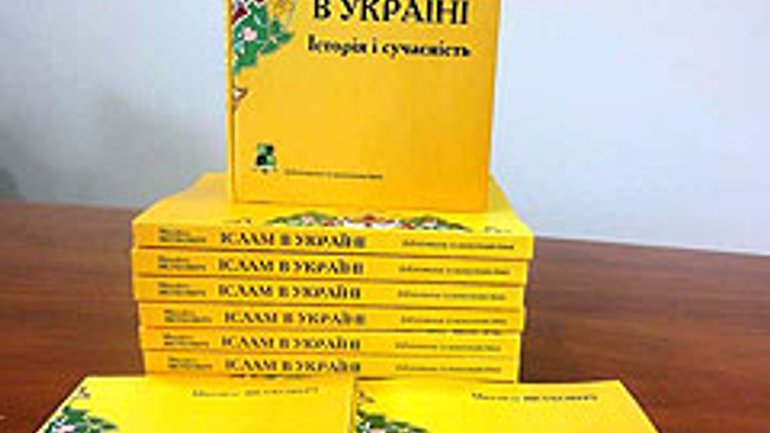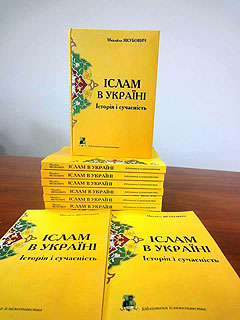Ukraine is the territory that united Muslims and Christians

 On March 24, a round table was held in Odessa on the occasion of the 350th anniversary of the visit of a famous Turkish traveler, historian and geographer Evliya Çelebi to southern Ukraine and Crimea. The round table was attended by leading scholars, religious and community leaders from Kyiv, Kharkiv, Donetsk, Crimea, Odessa and Poland.
On March 24, a round table was held in Odessa on the occasion of the 350th anniversary of the visit of a famous Turkish traveler, historian and geographer Evliya Çelebi to southern Ukraine and Crimea. The round table was attended by leading scholars, religious and community leaders from Kyiv, Kharkiv, Donetsk, Crimea, Odessa and Poland.
The subject of the event is directly related to Odessa region and Crimea, which Evliya Çelebi visited repeatedly during his travels, leaving a description of the culture, life, traditions and beliefs of peoples who had lived in our land, in his 10-volume work entitled “The Book of Travel.” Among other topics discussed during the round table were Ukrainian-Turkish relations, the history of relations between Islam and Christianity in the south of Ukraine.
The meeting was opened by Mufti of the RAMU “Ummah” Said Ismagilov (Kyiv).
“A special lot befell Ukraine: our country is at the crossroads of Muslim and Christian worlds, where the East and the West met, where the Christian Europe and the Muslim East have very well combined with the tradition, culture, language and history of the country, and this is a great achievement,” he stressed .
The main event of the round table was the presentation of the monograph by researcher Mykhailo Yakubovich “Islam in Ukraine: History and Modernity,” which included recent studies of Muslims living on Ukrainian territory. The monograph was first presented in Ukraine in Odessa. According to historian and Orientalist scholar from Ostroh Vitaly Schepanskiy, “This monograph has been written and prepared by Mykhail for a long time. The author started it when studying in university,” said Vitaliy.
The book consists of 6 chapters and begins with the rise of Islam in the world, ranging from medieval travelers and memories that came to Ukraine in those times. The book is complemented with illustrations of modern historical objects and archival photos of manuscripts and includes a dictionary of Islamic terms.
According to one of the participants of the round table, deputy head of Ukrainian Association of Social Organizations “Al Raid” Seyran Arifov from Kyiv, it is crucial to study the history of religions, the emergence of one or another confession.
“Our association was created primarily to serve as a bridge between the Muslim world and Ukraine. And we are sure that different denominations need first of all to know each other better, not to fight,” he said.
Seyran Arifov said that history should be reviewed and studied anew, as before, in the totalitarian time the ruling party intervened in this issue and professed Islamophobia.
The orientalist scholar, professor of Kyiv Shevchenko National University Yuriy Kosenko is like-minded. He noted that previously it was assumed that there had been slavery and enmity between Ukrainian and Crimean Tatars.
- Increasingly, however, the scholars are coming to the conclusion that between them there was close cooperation. This fact has been especially carefully studied in the last two years. After all, the Ukrainian history is incomplete without the history of Ottomans in our territory,” the historian said.
But the scholar of the Oriental Institute of the Historical Department of University of Poznan in Poland Mariusz Marshevskiy noted that textbooks paid little attention to the fact that there had existed a parallel Slavic-Christian cultural world on the territory of Odessa, Kherson and Mykolaiv regions. It belonged to the Muslim cultural space and, contrary to what is written in the school textbooks on Turkic nomadic barbarians of XVII-XVIII centuries, it had a rich history as well as cultural, religious and philosophical tradition.
“There are Western scholars who developed the technique of studying religion in the southern plains. This is our heritage. For example, in the territory of Balta there was an outpost of the Ottoman Empire in those times. After 1768, the city was a place of battles between the “haydamakys” and Tatars. In the late 18th century the Ottoman fortress Belhorod-Dnistrovskyy reached the peak of its cultural development,” says Mariusz Marshevskiy.
During the round table a small exhibition of books about Evliya Çelebi and his achievements provided by the Odessa National Library was also presented.









